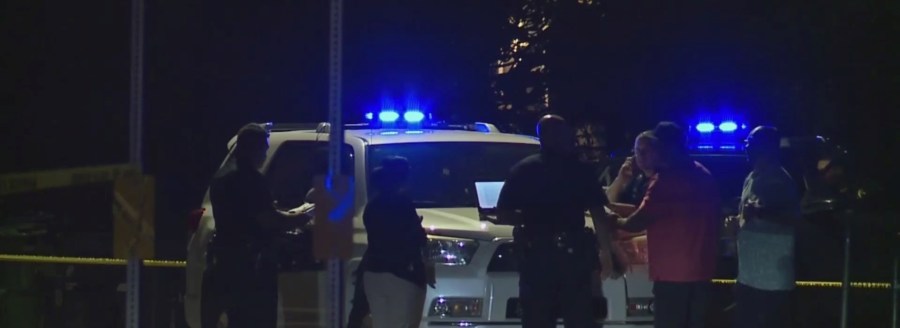WAIANAE, Hawaii (KHON2) — There have been nine shootings on the Waianae coast this year. Of that, four involved teenagers.
During a press conference to address the violent crime on Friday, the state, county, and federal officials, law enforcement said they need help from Waianae residents to help keep their community safe, and to come forward with information regarding the criminals in their area.
“There’s no such thing as snitching, [as Rep. Darius Kila said] this is your community,” said Honolulu Police Department Chief Joe Logan. “How do you get it back? The only way to get it back is to take it, and you need to take it and own it, and to do so you need to come forward and say ‘hey. here are the bad people, here’s what they’re doing,’ and we need your help.”
But many West Oahu residents are fearful of retaliation from groups or gangs.
Chief Logan said Crimestoppers is a good resource, because you can remain anonymous.
“In West Oahu, historically, there have been more crimes happening, especially more violent crimes, at least over the last couple of years, so, that is concerning,” said Dr. Ashley Rubin, professor of sociology at UH Manoa. “I agree call Crime Stoppers, I think that’s a nice, safe way to do it, you can think about how to tell people things without outing yourself.”
Experts in sociology and crime gave tips on what behaviors people can look for.
“But okay, so what do you tell them? What should you actually look out for? One, if there’s somebody in your community who you see having a gun that maybe shouldn’t have a gun, so people with criminal records, and not people who committed a crime many years ago and are now living a clean life, but if it’s somebody who’s recently and especially has an ongoing or especially escalating criminal history, that’s somebody you probably don’t want to have a gun. And that might be somebody that you might tell the police, ‘Hey, this person has a gun, I think they have a criminal record, I think they’re not supposed to have a gun, that would be really good to let them know,” she continued.
Officials said they’re focusing on finding new ways to support youth and have their voices heard.
“I see everywhere, children and parents together, and what is everyone doing? They’re looking in their phones separate from one another,” explained Dr. Reneau Kennedy, a clinical forensic neuropsychologist. “So, it goes back to the same old concept of what is called communication, which is the parent learning what a child is interested in, and a child being interested in what a parent has to say, and we teach very basic values.”
Experts said juveniles have less self-control or understanding of their actions or the consequences, partially because their brain is still developing. They said lack of resources on the leeward coast, less youth groups, and parent engagement also play a role.
“So, I think less media time, for both children and parents, and more enculturation of who are you and what can I teach you as you’re learning and growing up, is really kind of an important thing, and that can be from, you know, an auntie, an uncle, a grandparent or a parent,” she added.
When people are bored, bad things happen, said Dr. Rubin.
“Whether that’s crime or just, you know, getting into small trouble. So, I think keeping people occupied, giving them a purpose, giving them things to do, whether that’s volunteer work or education or sports or a safe place to play in the park,” she said.
As for long-term solutions, she said it comes down to a few things.
“Why is this community having so much crime? And one of the ways that we can look to that is it has a lot of things that correlate with crime, like unemployment, poverty, substance abuse issues and so kind of taking steps to help, kind of revitalize the community, make it more robust, like shoring up education, shoring up employment training, taking steps to help people, because a lot of those things are stressors, and that can lead to additional crime at any age,” Dr. Rubin added. “So, taking those steps to help people and kind of break these cycles of violence and inequality, and I think taking those kind of long-term factors and not just thinking like, okay, let’s send in more police, like, okay good strategy, but that shouldn’t be the only strategy we’re using. We need to make sure that we do have after school programs, that the parks are safe places for kids to hang out, that there are programs that we are giving pregnant people, prenatal nutrition and nutrition guidance and those sorts of things, all that stuff that’s basically social policy, rather than crime policy has a much bigger impact in crime reduction, and that would be a long term strategy, it takes years for it to pay off, but you know, if we don’t want to be having the same conversation in 20 years, those are the things we need to be doing.”
